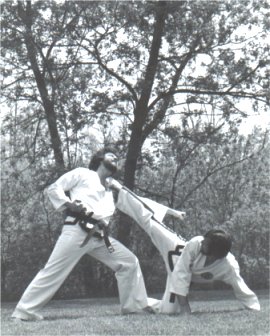
There are many kinds of concealed carry knives. They are efficient and easy to use. The blades come in a variety of designs to fit your needs. The overall layout of the knife is also designed to be easy to carry and conceal. Regardless of the type of knife you choose, you should always know the laws in your state before carrying one.
Concealed carry knives are prohibited by law
Each state has its own laws regarding concealed carry knives. The law does not apply to individuals who are on federal property, or those who travel across state lines. Concealed carry knives in other states are only allowed in certain places, such as private residences. New York's knife laws are extremely restrictive.
However, not all states prohibit pocketknives. Nevada is one example. Knives are not allowed for felonies and restraining orders holders. New Jersey also has specific rules about knife ownership. Utah, Oregon, and Utah ban felons from owning knives. Based on criminal history and mental state, Wisconsin is not allowed to allow certain people to carry knives. Wyoming is also not.

Types of concealed carry knives
There are many types of concealed carry knives available. Each is designed for a specific purpose and comes with different benefits. Some knives are intended for self-defense while others are used for combat. You can even find knives that are suitable for daily use. But it is important to know the state legal status of the knife. The knife's blade length and type should meet the laws of your jurisdiction.
Certain types of knives are prohibited. Michigan is one example of a state that has laws that prohibit knives from being carried. Some knives like hunting knives are allowed and others are not. Additionally, knives that are not allowed to be carried in public places are prohibited. You can't carry a dirk, or stiletto while you walk in New York City. Other types of knives, like non-folding, double-edged ballistic knives, and double-edged knifes, are also prohibited.
In different states, concealed carry knives are legal
If you're planning to carry a concealed carry knife in the United States, you'll need to know the legality of pocketknives in each state. Knives can be considered dangerous weapons in certain states. This could result in criminal prosecution. There are exceptions to the rule. For instance, in Wyoming, knives that are less than three inches long are not considered dangerous weapons. Pocketknives in Washington can be carried openly. This can lead to uncomfortable situations and even possible legal problems.
Knife laws in Tennessee have been complicated and confusing in the past, but they have become much more lenient in recent years. Tennessee has no laws that limit the possession and transport of pocketknives. Although you should still be familiar with the laws of each state before you carry a knife, Tennessee is the least restrictive when it comes blade laws.

Techniques for hiding a knife
You need to plan carefully before you carry a knife in self-defense. You must also be committed to learning and making good decisions. The situation dictates the right technique. The knife can be carried horizontally or vertically. Horizontal carry requires that the knife be held with the handle facing up.
If concealed carry is legal in your area, you should verify that the permit requirements are met and the regulations regarding concealed blades. It is best to keep fixed-blade EDCs under three inches. You can conceal your EDCs with pocket knives and swiss-army knives, as well.
FAQ
What are the advantages of training in martial arts?
Martial arts training helps you develop skills you can use in any situation. These skills will help you grow stronger and quicker. You will also learn how to respond to different attacks.
You will also feel more confident. If you feel secure, you are more likely to be relaxed and less stressed.
They can also be beneficial for your health. Studies show that regular exercise improves your overall physical condition.
Are there any legal requirements for owning a stun gun?
Some states require that you show proof of training before you can get a stungun.
Some states require that stun guns be registered with the police.
Other states require you not to tell law enforcement whenever your move.
How do beginners do self-defense?
It's not only for those who have been trained by professionals to defend themselves. It is also important to be able defend yourself alone. You should learn some basic moves to protect yourself from an attack.
Begin by practicing basic moves like punching and kicking. Then you can add more advanced moves like grappling and joint locks.
It is always useful to practice something that is similar to what you might face in real-life situations. To learn how to kick someone you need to practice on something soft, such as a pillow.
So you don't get hurt while practicing. You should also be careful not to hit any object hard, as you could break it.
What is the best self-defense method?
Pepper spray is a powerful tool for self defense. It is fast-acting and simple to use. However, you should always practice proper techniques when using pepper spray.
As a first line of defense against violent attackers, pepper spray is not recommended. If someone threatens you with violence, then call 911 immediately.
What does it cost to sign up for a course in self-defense?
There are many selfdefense courses. The cost of self-defense courses varies depending upon where you live and whether or not you take them online.
Some schools charge about $50 per calendar month, while others charge up $200.
Local community centers are a great option if you are looking for an affordable alternative. Many of these places offer free self-defense lessons.
Can I legally possess a stungun?
Yes. However, you will need a permit issued by your state.
Fill out the application form and pay the fee to apply for a permit.
Once you have your permit, it is important to keep it visible (such as your wallet).
If your permit is lost, you will have to start the process over again.
What are some self-defense tips for women?
It is important to be able quickly react when you are practicing self defense. You need to be ready for any situation.
Training with a friend is one of the most rewarding things you can do. Having a partner will allow you to practice together and work on your technique.
Another tip: Practice with something heavy. You'll be more likely than your attacker to attack you if you have something heavy.
Statistics
- Most likely, you'll get tapped out by 90% of the people in your first 3-5 months. (mmaclan.com)
- The Rape, Abuse & Incest National Network reports that 70 percent of sexual violence cases aren't committed by random strangers in a dark alley but by people we know: friends, family, partners, co-workers, etc. (healthline.com)
- Most likely, the person will want some kind of boxing match, so if you can out-box them, this would be 100% ideal for survival. (budodragon.com)
- Boxers aren't allowed to fight in a clinch, which is a position that occurs in 80% of the streetfights. (mmaclan.com)
External Links
How To
How to Survive a Home Invasion
Home invasion is scary, especially for children. We didn't expect to live through home invasion when we started our journey with installing a home security system. Here are the lessons we have learned thus far.
-
Do not let your children see the attackers. Two men broke into our home upstairs while our kids were sleeping. We kept them downstairs till the police arrived. They didn't harm our kids, but it was enough to traumatize them.
-
All valuables should be secured All valuables are kept in a safe in the bedroom. Even if someone breaks into the house, they won't be able to access it.
-
Keep an eye on Burglars. Our neighborhood is known for its high number of burglaries. We keep a look out for suspicious people and cars.
-
Make sure you have a backup plan. Our family will be financially taken care of financially if anything happens. We also have a plan that allows us to leave the United States if necessary.
-
Be prepared. If you ever find yourself in a situation where you must defend your life, you must be prepared. Prepare food, water, and other supplies.
-
Call 911 first. If someone breaks into your house, dial 911 immediately. It's better not to wait for someone to break into your home than to call the police.
-
Use common sense. Don't let anyone inside who doesn't belong there. Also, don't invite strangers to come over.
-
You can get help from nearby neighbors and people who live in the same area. If you feel unsafe, call your neighbors or friends. They can help you watch your back while you call the police.
-
Be calm and follow the instructions of police officers. Do what is asked. Avoid fleeing or resisting arrest
-
Photograph Any Evidence. All evidence collected during an investigation should be photographed. This includes fingerprints, blood samples, and other items.
-
File A Report With Local Law Enforcement. File a report with law enforcement even if no one was injured. This will help to prevent future crimes.
-
Get in touch immediately with the Insurance Company. You should immediately contact your insurance company. Let them know everything and then ask for an adjuster.
-
Your personal belongings should be removed. You should get rid of all personal belongings. If you're wearing expensive jewelry, take it off and put it somewhere safe.
-
You must take good care of yourself. Clean up after yourself. Throw away the trash, sweep up broken glass, and make sure all doors and windows are locked.
-
Do not talk about what happened. It is not a good idea to talk about the events that happened to you. You never know who could use this information against your later.